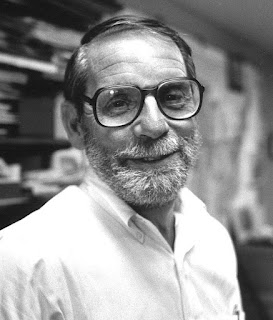Issue #81 — Monday, January 20, 2020
Posted by Denny Hatch
The Great "Junk Mail" Spat and
A Fascinating P.R. Campaign
A Fascinating P.R. Campaign
First
Used in 1950-1955, the Term “Junk Mail” Was
Universally Hated by the Direct Marketing Industry
Before the 1990s Internet did not
exist.
In those years, more money was spent on direct mail than any other advertising
medium. More money than TV. More than Telemarketing.
More than print advertising. More than radio, billboards and skywriting.
Six days a week our mailboxes were stuffed
with catalogs, letters, jumbo postcards and lumpy mailings of all
shapes and sizes—consumer, business and non-profit.
Okay, Junk Mail Kills Trees and
Inundates Our Landfills... But...
At the same time it was
one of the great engines that fueled America’s multi-trillion dollar economy.
What’s more, during the 1950s—when the term “junk mail” was invented— direct
mail was so profitable for the U.S. Postal Service it meant you and I could send
a First-Class letter or greeting card anywhere in the country—including Puerto
Rico, Hawaii and American Samoa—for just 4¢!
(Compare the 4¢ cost for a First Class stamp to today's price of 55¢. Even with sky-high pricing, the USPS lost $8.8 billion in 2019!)
(Compare the 4¢ cost for a First Class stamp to today's price of 55¢. Even with sky-high pricing, the USPS lost $8.8 billion in 2019!)
“Junk
Mail” Drove the Industry Nuts!
Any time the words “junk mail” appeared in the media, outraged people in the
industry canceled their subscriptions to every magazine or newspaper that used the term.
In addition, they wrote furious letters to Congress insisting the term should be outlawed in the English language.
When I was publishing the WHO’S MAILING WHAT! newsletter, I would
periodically use the term “junk mail” just to see how many hate letters and
phone calls I would receive.
The
Industry Strikes Back!
Ed Roll, Chairman of the Direct Mail
Marketing Association (DMMA) and his board decided a P.R. campaign was needed
to convince Congress that Direct Mail was really and truly a good thing for consumers, businesses and the economy.
Ed Roll hired the highest-paid direct mail creative team in the world—Bill Jayme and designer Heikki Ratalahti—to come up with an opulent personalized mailing to members of Congress touting the moral, spiritual and financial benefits of direct mail.
Ed Roll hired the highest-paid direct mail creative team in the world—Bill Jayme and designer Heikki Ratalahti—to come up with an opulent personalized mailing to members of Congress touting the moral, spiritual and financial benefits of direct mail.
BTW, Bill
Jayme Loved Calling It “Junk Mail!"
Jayme expressed his real feelings about “junk
mail” in an interview he did for my WHO’S MAILING WHAT! newsletter many
years ago. Jayme said:
“I don't understand why the industry hates
the term junk mail.
“I love it.
“After all, antique dealers love
junk shops. Old car enthusiasts love junk yards. Until a few years ago,
Wall Street loved junk bonds. Who among us doesn't love to head
for the beach with a pile of junk fiction? And what's a Hong Kong fisherman
without his beloved junk?
“Junk is a wonderful word.
“Of course, in Heikki's and my case, we
spell it “junque.”
That said, Bill and Heikki—whose
current rate for a direct mail package was $20,000 to $40,000 ($175,000 to
$350,000 in 2019 dollars)—were delighted to come up with an unbelievably expensive
mailing to roughly 1,000 members of Congress plus other government and business officials.
As a “thank you” to the industry that was
making them rich, Jayme-Ratalahti worked pro-bono.
Bill and Heikki’s Extraordinary Anti-junk-mail Mailing
The mailing went out First
Class in a 9” x 12” envelope with bunch of live postage stamps plastered in the
upper right hand corner. Open the envelope, and here’s what comes out:
Open this cover and a
personalized letter to each Congressman and Senator literally falls out:
This is a textbook direct
mail letter:
• Personalized envelope
• Personalized salutation*
• Blue ink signature—the guy’s real
signature, not a phony type font.
• “Short words! Short sentences! Short
Paragraphs.”
—Andrew J Byrne, Freelance copywriter.
Bill Jayme’s Text for the Rest of the Mailing—
A Paean to the Joys of Receiving Direct Mail!
THOSE
OF US in the business call it direct response
advertising. The Postal Service calls it Third Class Mail. But you probably
call all of those letters junk mail, and sometimes, how right you are:
The circular that announces a sale
on lawnmowers when you live high up in an apartment house. The invitation that
asks you to try a magazine you’ve been subscribing to for years. The prospectus
for retirement home properties addressed to you son … when your son is four months
old.
SURE, WE MAIL
advertisers make mistakes. Doesn’t everybody at times? But stop a moment.
Consider. Think of the many nice things your mailbox does for you daily.
It brings
you catalogues that give you the fun of choosing ahead, from your armchair,
gifts for the holidays and special occasions. Catalogues that let you plan next
Spring’s garden while snow may be still on the ground. Catalogues that let you
mull over new wardrobes, new appliances, new home furnishings, new cars, new
toys, new gadgets.
Direct mail
lets you buy vitamins and medicines almost wholesale. Insurance and mutual
funds direct. Records and books at discount. Magazines at reduced rates. Less
expensive film processing.
It lets you
buy cheaper all sorts of delicacies your local stores may not stock. Apples
fresh from Oregon. Lobsters live from Maine. Florida oranges. Wisconsin
cheeses, Georgia pecans. Vermont maple syrup, Virginia hams, Texas grapefruit,
wines from California, New York, Europe.
IT BRINGS ALL
kinds of useful enclosures, from pennies to ball point pens. Seed packets.
Christmas seals. Soap samples. Toothpastes. Cosmetics. Coupons that knock a
dime or so off prices at the supermarket and drugstore. Chances at sweepstakes
prizes. Photograph booklets about places to vacation. Art reproductions you can
frame.
It brings
you notice of private sales at your department and clothing stores.
Announcements of new shops, new services, new products. News of adult
education courses, lectures, concerts, house tours, theatre productions, sports
events, charter flights.
It brings
appeals that let you help support museums, schools, universities, libraries,
hospitals, churches, charities. Appeals that let you help save our wildlife,
our open spaces, our environment. Appeals that let you help fight heart
disease, mental illness, cancer. It helps you get to know political candidates.
It also helps get out the vote.
ON DAYS WHEN
the postman fails to deliver what you’ve really been waiting for—the check,
postcard, note from the folks—an advertising letter can put a smile back on the
day. Anything beats an empty mailbox. And on days when you’re just too busy, no
advertising is easier to get rid of:
Letters
don’t make you sit through a dozen or more commercials when you’re trying to
hear on a talk show what Dr. Margaret Mead has to say. Letters don’t keep
interrupting when you’re trying to listen to the news.
LETTERS DON’T
fast-talk you into buying something you may not want just so you can get out of
the store. They give you time to think. Have a seat. Talk it over. Sleep on it.
It’ll still be there in the morning. Same merchandise. Same offer. Same price.
Letters
don’t block your view of the scenery. Letters don’t blink on and off. Letters
don’t make you answer the door just after you’ve stepped into the shower. And
letters don’t make you dream up excuses to get the man off the phone. (Our
favorite: “I’ve got to hang up now. The telephone is ringing.”)
If ever
a letter isn’t of interest—if it bores, intrudes, offends—all you have to do to
make it vanish is throw it into the scrap basket.
In most
cases today, direct response advertising is delivered to your home pre-cancelled,
pre-zip coded, pre-bundled—no extra trouble, says the Postal Service. And
according to the Government’s own figures, Third Class more than pays its own
way:
In fact,
direct response advertising helps make it possible for you to send a lengthy
letter to a friend or relative hundreds, thousands of miles away for less than
the time you pay to call up a neighbor next door!
NOT SO BAD
as you may previously have thought is it—this business of Third Class mail. And
in fairness, isn’t it time we all stopped calling it “junk”? We think so. We
hope you do too.
P.S. A Bit of Trivia
Senator
John V. Tunney (1934-2018)—who's letter is illustrated above—was the son of heavyweight boxing champion Gene Tunney. He beat the legendary "Manassa Mauler”—Jack Dempsey—in the heavily disputed 1927 championship
match forever known as “The
Long Count.”
Takeaways to Consider
• As I recall, Bill Jayme gave me
this mailing for my massive WHO’S MAILING WHAT! Archive. I scanned it.
Whereupon I added it to the file of thousands of original mailings from 1982 to
2017. These were destroyed by the new owners of my little company in 2018, because this
collection took up so much space.
• Neither the Tunney letter nor the
Jayme copy mentions a reply mechanism and the copy gives no reason to reply and
does not ask for one.
• This is nuts.
• Okay, it was a P.R. effort—an
attempt to influence thinking rather than sell a product or service and
ask for an order.
• Quite simply, if you send out a
mailing and do not give a reason for a reply, nobody will respond.
• If the great semi-truck carrying
bags of mail from the printer to the USPS Distribution Center went over a cliff
and into the ocean, no one would know it.
• No response means you have no way
of knowing if the mailing indeed went out or if anybody bothered to read it.
• In short, always, always, always
ask for a response of some kind—via an order form, 800 number (with telephone
reps standing by), a survey or a URL that takes the recipient to a dedicated
landing page.
• Otherwise, the mailing is a total
waste. Or a total bomb. Either way, you'd want to know for sure.
###
Word count: 1620














